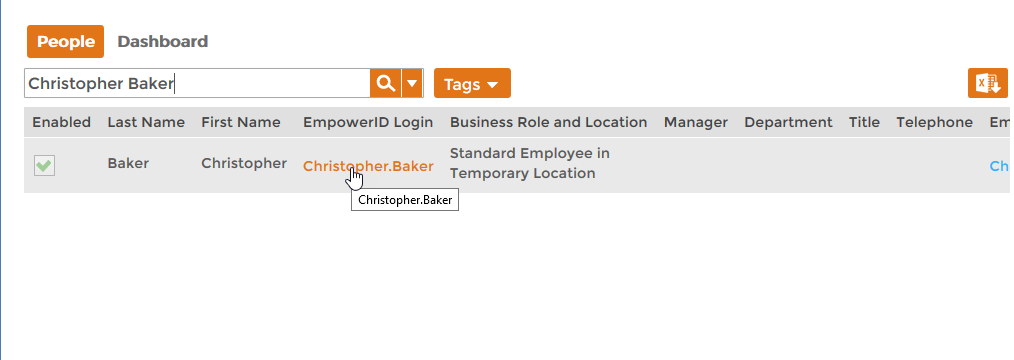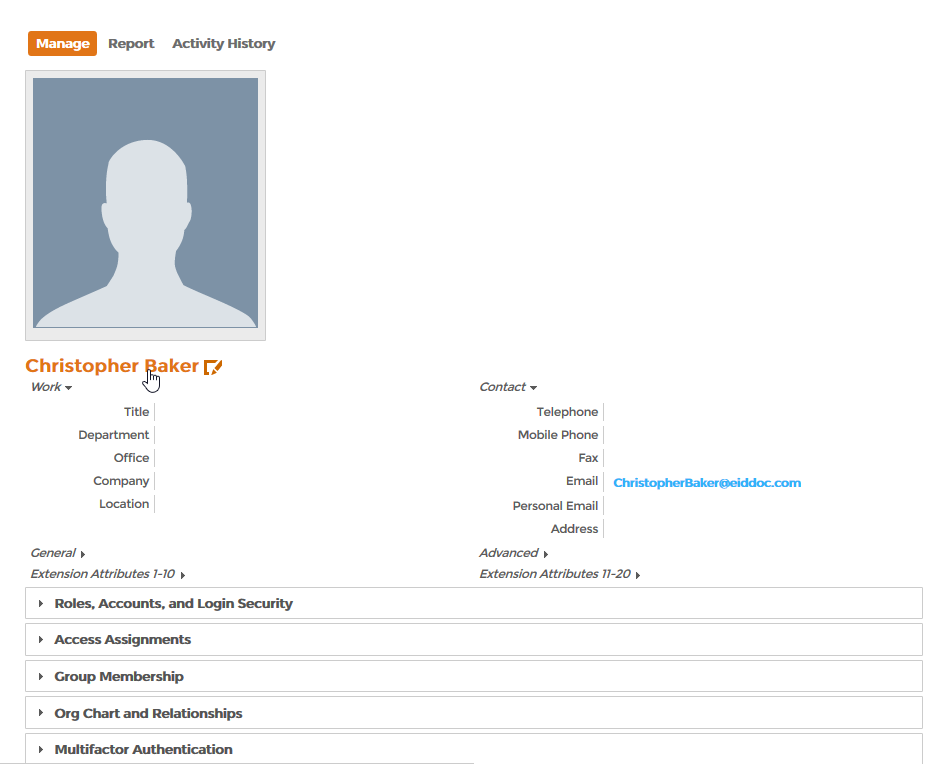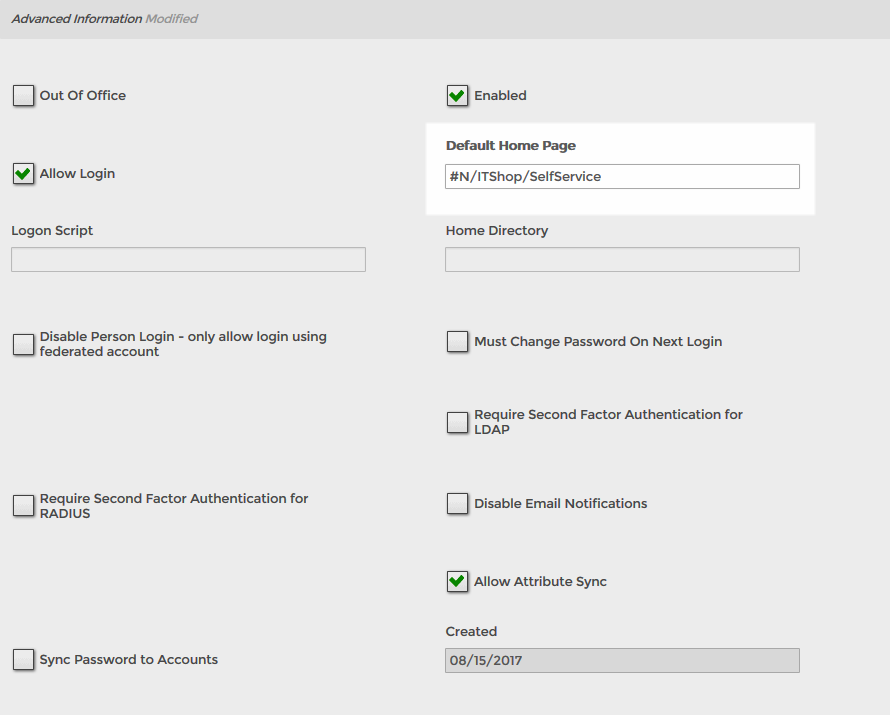You are viewing an earlier version of the admin guide. For the latest version, please visit EmpowerID Admin Guide v7.211.0.0.
Setting Home Pages
By default, the home page assigned to each person is their personal dashboard. At a more collective level, this can be changed on the Password Manager Policies Overview given to a person, in which case, all people with the policy would experience the change. Or you can change it individually by specifying the home page for a person when creating a new person (Advanced Mode only) or by editing the attribute on an existing person.
In this article, we demonstrate how to specify the home page by editing the attribute for an existing person. To see how to set the home page for people when first creating them, see the Create Person Advanced Mode section of the Creating People topic.
Setting the home page directly on a person takes precedence over the home page setting on that person's Password Manager policy.
To set the home page for a person
- From the navigation sidebar, expand Identity Administration and click People.
- From the People tab, type the name of the person for whom you want to set the home page in the search field and press ENTER.
- From the grid, click the EmpowerID Login link for the person.
This directs you to the View One page for that person. View One pages allow you to view information about a selected resource and manage that resource as needed. - From the View One page, click the Edit link for the person. Edit links have the pencil icon.
From the person's Edit page, click the Advanced tab and then type the desired home page in the Default Home Page field using the relative path to it in your environment. Relative path means that portion of the page's URL that begins with the # symbol. You can find this for any page by clicking the link for the page in the Navigation Sidebar.
So for example, if you want to set the home page for a person to the Self-Service Workflows page of the IT Shop, and the full URL for accessing that page is https://sso.empowerid.com/ui/#N/ITShop/SelfService, enter #N/ITShop/SelfService in this field. Other examples include:
• Find Person page – #Common/Find/Person
• Tasks To Do – #Common/Find/TasksToDo.When setting the home page for a person, ensure that the person has access to the page; otherwise, they will see a "Sorry, but you do not have access to this page" message after logging in. For information on assigning access to resources in EmpowerID, see Identity Administration.
- Click Save.


